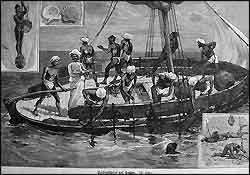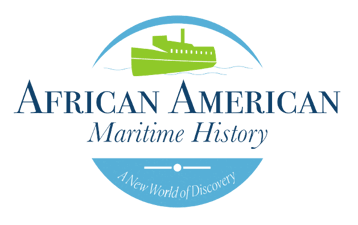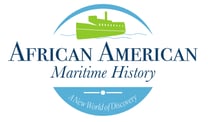African American Maritime History: The Story of Enslaved African Pearl Divers
Many people do not know about the practice of enslaving people from East Africa for use as the workforce in the pearling trade which persisted into the 20th Century. Owning pearls was a treasure of incomparable value throughout much of recorded history. In fact, pearls were the most expensive jewelry in the world. Natural pearls were so rare and expensive that they were exclusive to the very wealthy. This was all before the creation of cultured pearls in the early 1900s by an enterprising Japanese businessman, Mikomoto.
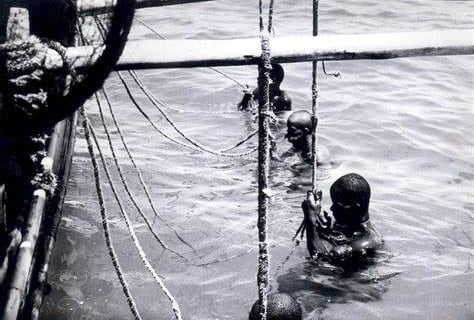

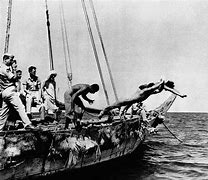

When the English colonizers arrived along the North American Atlantic coast, they found the Native Americans wearing pearls and pearls in stockpiled in abundance. As in Asia, Native Americans reaped freshwater pearls from lakes and rivers like the Ohio, Tennessee, and Mississippi, while others effectively retrieved marine pearls from the Caribbean and waters along the coasts of Central and South America. Innumerable pearls were shipped from America to Europe which earned the colony the title of the “Land of Pearls.”
All along the Mississippi riverbanks were mother-of-pearl button factories. These buttons were exported all over the world. The pearl industry was massive, and it produced great wealth. The diving and harvesting was all performed by African “Aquanauts”, free divers or those diving with only the air in one’s lungs. These enslaved Africans were sought throughout the Atlantic world. Their expertise, developed from childhood, allowed them to quickly recover, not only pearls, but tons of gold, silver, and other items from shipwrecks. Most were hired from their owners and treated like free, highly skilled, craftsmen, receiving both wages and equal shares of salvages, enabling some to purchase their freedom and that of family members. This African American Atlantic aquatic history and culture illuminates the relationship of seaports along coastal seas and African diving traditions with maritime history which has evolved into today’s elite longshoremen.
